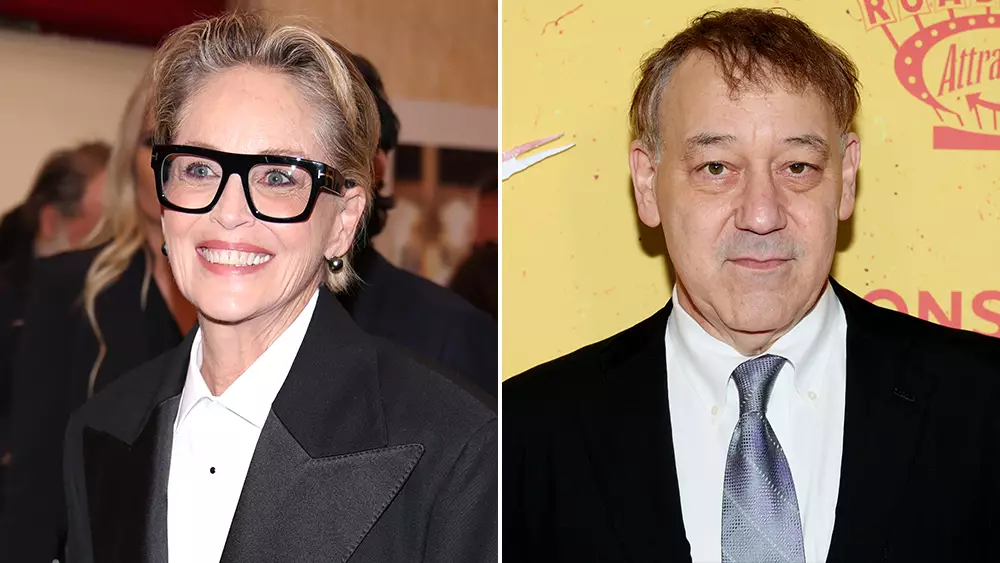Sharon Stone, the celebrated actress known for her iconic roles in films like Basic Instinct, recently graced the Torino Film Festival, where she received a lifetime achievement award and presented her 1995 film, The Quick and the Dead. During a Q&A session, Stone candidly reflected on her experiences with director Sam Raimi, expressing her complex feelings about their working relationship. This moment not only highlights her retrospective insights into the film industry but also raises significant discussions around loyalty in collaboration and the challenges female filmmakers face in Hollywood.
Stone’s reflections painted a vivid picture of two very different directorial styles and attitudes toward collaboration. She contrasted her experiences with Raimi, known then for his cult classics such as The Evil Dead, to her collaboration with auteur Martin Scorsese, famous for his deep narratives and strong loyalty towards collaborators. While she acknowledged Raimi’s talent and humor, she characterized him as lacking in familial loyalty—a quality she felt was particularly pronounced in her ongoing relationship with Scorsese. According to Stone, while Raimi’s later success with franchises like Spider-Man marked a significant career leap, he failed to maintain the kind of long-term professional kinship that she valued immensely in her collaborations.
This notion of loyalty, particularly in the film industry, raises questions about the expected camaraderie between filmmakers and actors. Stone’s sentiments resonate deeply, illustrating how personal relationships can significantly impact professional opportunities in an industry historically riddled with power imbalances.
Despite its initial commercial failures, The Quick and the Dead has become a cult favorite, capturing the imagination of later generations of viewers. The film features Stone as a mysterious gunslinger avenging her father’s death, a narrative exploring themes of vengeance, justice, and redemption. It serves as a testament to Stone’s producing abilities, which allowed her to attract emerging talents like Russell Crowe and Leonardo DiCaprio. However, the film’s tepid reception upon release speaks to the unpredictable nature of cinematic success and how cultural perspectives on specific genres can shift dramatically over time.
Stone’s producing role in the film illustrates her commitment to not just acting but also shaping narratives, particularly by providing platforms for rising stars. This proactive approach to her career could be seen as an assertion of agency in a male-dominated industry, although it also highlights the hurdles she faced in continuing her directorial pursuits.
When the conversation shifted to why Stone did not continue as a director after The Quick and the Dead, her response was eye-opening. She articulated a point often overlooked: the systemic sexism within Hollywood. Stone described persistent resistance from studio heads when she sought funding for her projects, despite her well-received pitches. Her experience underlines a broader issue—many women in the film industry have similarly faced obstacles in advancing to directorial roles, a challenge compounded by the cultural biases prevalent during the 1990s and early 2000s.
Drawing attention to her frustration, Stone suggested that her intellectual contributions as a producer were undervalued, not just by her peers but by the male-dominated hierarchy that shaped the studio system. The insidiousness of Hollywood’s sexism has stunted the growth of many talented female filmmakers, and she articulated how her own aspirations were repeatedly thwarted, leading her to pivot towards casting assistance rather than directing—a field she clearly excelled in but did not desire to pursue indefinitely.
Sharon Stone’s candid reflections at the Torino Film Festival unveil the layered complexities of her career and the challenges faced by women in the cinematic landscape. From asserting her worth as a producer to articulating the deficiencies in loyalty among collaborators like Raimi, Stone embodies the struggles and triumphs of many in Hollywood. As both a cultural icon and a vocal advocate for change, she continues to inspire future generations of filmmakers to navigate, challenge, and ultimately transform the industry for the better. Her narratives serve as a powerful reminder of the need for loyalty, collaboration, and an equitable space in Hollywood for all voices.


Leave a Reply